| All You Can Eat | ||||
|---|---|---|---|---|
 | ||||
| Studio album by | ||||
| Released | October 10, 1995 | |||
| Genre | Pop | |||
| Length | 36:09 | |||
| Label | Warner Bros. | |||
| Producer | ||||
| K.d. lang chronology | ||||
| ||||
All You Can Eat is the third solo album by Canadian singer k.d. lang, released in October 1995.
| All You Can Eat | ||||
|---|---|---|---|---|
 | ||||
| Studio album by | ||||
| Released | October 10, 1995 | |||
| Genre | Pop | |||
| Length | 36:09 | |||
| Label | Warner Bros. | |||
| Producer | ||||
| K.d. lang chronology | ||||
| ||||
All You Can Eat is the third solo album by Canadian singer k.d. lang, released in October 1995.
| Review scores | |
|---|---|
| Source | Rating |
| AllMusic | |
| Cash Box | (favorable) [2] |
| Chicago Tribune | |
| Robert Christgau | |
| Entertainment Weekly | A [5] |
| Los Angeles Times | |
| NME | 7/10 [7] |
| Rolling Stone | |
| Spin | 7/10 [7] |
In a Rolling Stone review, Barry Walters wrote "The rhythms and sonic textures draw from the vintage soul of Al Green, while the stark arrangements and lush melodies embrace the primal sophistication of trend-bucking college-radio faves like Björk and [[[PJ Harvey|PJ] Harvey]] without evoking either. By holding back on vocal volume and letting her creativity loose, Kathryn Dawn ultimately expresses much more. Traditional torch and twang gave her something to master and rebel against, but sublimely sensual art pop has set lang free." [9]
David Browne of Entertainment Weekly described the album as "Ten meditations on unrequited desire, courtship, rejection, and sex, All You Can Eat is both the most brazen and conventional album she’s ever made, and one of her best. With each new album, lang has gradually toned down the often cloying cowpunk giddiness of her early work. That course continues with Eat, a sober album that musically and lyrically picks up where Ingénue‘s hit 'Constant Craving' left off. The songs are a series of pleas to a lover to allow our tortured chanteuse into her life, each one highlighting varying degrees of optimism, confusion, and bleakness." [10]
In an AllMusic review, Stephen Thomas Erlewine called it "a more experimental and realized record than its predecessor [ Ingénue ]." [11]
All songs written and composed by k.d. lang and Ben Mink
The song "Sexuality" was also released on Friends Original TV Soundtrack.
Weekly charts
| Year-end charts
Certifications
| |||||||||||||||||||||||||||||||||||||||||||

Frogstomp is the debut studio album by Australian rock band Silverchair. It was released on 27 March 1995, when the band members were only 15 years of age, by record label Murmur. The album features the band's commercially most successful single, "Tomorrow".

Anthology 3 is a compilation album by the Beatles, released on 29 October 1996 by Apple Records as part of The Beatles Anthology series. The album includes rarities and alternative tracks from the final three years of the band's career, ranging from the initial sessions for The Beatles to the last sessions for Let It Be and Abbey Road in 1969 and early 1970. It is the last in a trilogy of albums with Anthology 1 and Anthology 2, all of which tie in with the televised special The Beatles Anthology.
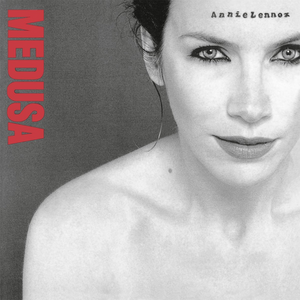
Medusa is the second solo studio album by Scottish singer Annie Lennox, released on 6 March 1995 by RCA Records. It consists entirely of cover songs. The album entered the UK Albums Chart at number one and peaked in the United States at number 11, spending 60 weeks on the Billboard 200. It has since achieved double platinum status in both the United Kingdom and the United States.
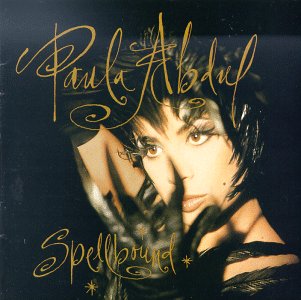
Spellbound is the second studio album by American singer Paula Abdul, released in May 1991. The album was an international success and spawned major radio hits with the singles "Rush Rush", "The Promise of a New Day", "Blowing Kisses in the Wind", "Vibeology" and "Will You Marry Me?". The album went triple platinum in the United States and peaked at No. 1 on the Billboard 200.

Spirit is the second studio album by American singer-songwriter Jewel, released on November 17, 1998, by Atlantic Records. Singles include "Hands", "Down So Long", and a newly recorded version of "Jupiter", followed by a remix of "What's Simple Is True" to promote Jewel's debut film Ride with the Devil. In addition, a one-track CD containing a live version of "Life Uncommon" was released to music stores in hopes to raise money and awareness for Habitat for Humanity.

Ingénue is the second solo album by Canadian singer k.d. lang, released in 1992. It is Lang's most successful album on the pop charts, both in her native Canada and internationally, and has more of a cabaret flavor than her earlier more country-influenced work.

Drag is a cover album by k.d. lang, released in 1997; most of its songs feature a smoking motif, although some address broader issues of dependence and/or addiction. The cover of Dionne Warwick's "(Theme from) Valley of the Dolls" was notably used in key scenes in the pilot episode and series finale of the Showtime comedy-drama series Nurse Jackie. Lang's cover of "Hain't It Funny" was part of the soundtrack for the 2002 film Talk to Her.

Shut Up and Dance: Mixes is a Paula Abdul remix album, released in 1990. It contains dance remixes of the six hit singles from Abdul's debut album Forever Your Girl, one remixed album track and one medley. The album was another huge success for Abdul, peaking at No. 7 on the Billboard 200.
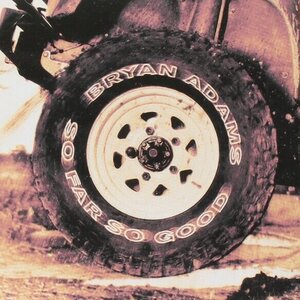
So Far So Good is a compilation album by Canadian rock musician Bryan Adams, released by A&M Records in November 1993. The album reached number six on the Billboard 200 in 1994 and was a number one hit in the United Kingdom and many other countries.
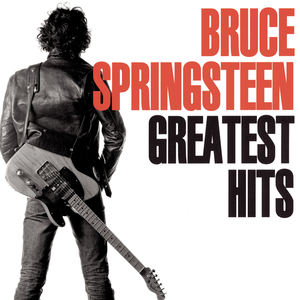
Greatest Hits is the first compilation album by American singer-songwriter Bruce Springsteen, released February 27, 1995, on Columbia Records. It is a collection of some of Springsteen's hit singles and popular album tracks through the years along with four new songs at the end, mostly recorded with the E Street Band in 1995. The latter constituted Springsteen's first release with his backing band since the late 1980s. Some of the songs are shorter versions of the original album releases.
Big Ones is a compilation album by American rock band Aerosmith, released on November 1, 1994 by Geffen Records. Big Ones featured 12 hits from the band's three consecutive multi-platinum albums, Permanent Vacation (1987), Pump (1989), and Get a Grip (1993), as well as the hit, "Deuces Are Wild" from The Beavis and Butt-Head Experience (1993), and two new songs, "Blind Man" and "Walk on Water", which were recorded during a break in the band's Get a Grip Tour. These songs were also included on the band's 2001 compilation album, Young Lust: The Aerosmith Anthology. Big Ones is the band's second best-selling compilation album, reaching #6 on the Billboard charts, and selling four million copies in the United States alone. The album quickly became a worldwide hit reaching the Top 10 in nine countries before the end of the year.
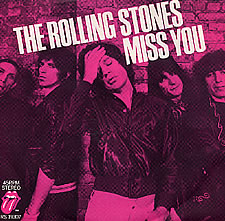
"Miss You" is a song by the English rock band the Rolling Stones, released on Rolling Stones Records in May 1978. It was released as the first single one month in advance of their album Some Girls. "Miss You" was written by Mick Jagger and Keith Richards.

Stripped is a live album by the English rock band the Rolling Stones released in November 1995 after the Voodoo Lounge Tour. It contains six live tracks and eight studio recordings. The live tracks were taken from four 1995 performances, at three small venues, and include a cover of Bob Dylan's "Like a Rolling Stone", which was the first single from the album. The remaining eight tracks were acoustic studio re-recordings of songs from the Stones' previous catalogue, the exception being a cover of Willie Dixon's "Little Baby". The studio performances were recorded "live," i.e., without overdubs.

Hot Rocks 1964–1971 is a compilation album by the Rolling Stones released by London Records in December 1971. It became the Rolling Stones' best-selling release of their career and an enduring and popular retrospective. The album includes a mixture of hit singles, such as "Jumping Jack Flash", B-sides such as "Play with Fire", and album tracks such as "Under My Thumb" and "Gimme Shelter", the last of which has become one of the Rolling Stones' most popular and highly regarded songs. The album artwork depicts five nested silhouettes of the band members' profiles taken by rock photographer Ron Raffaelli in 1969. A photograph of the band at Swarkestone Hall Pavilion, taken by Michael Joseph in 1968, was printed on the back cover of the vinyl release.

Amigos is the seventh studio album by Santana released in 1976. It generated a minor U.S. hit single in "Let It Shine" and was the band's first album to hit the top ten on the Billboard charts since Caravanserai in 1972. In Europe, the song "Europa" was released as a single and became a top ten hit in several countries.
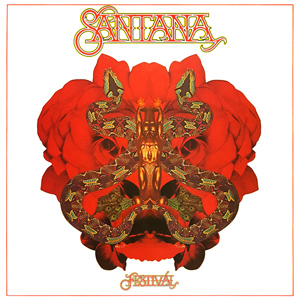
Festivál is the eighth studio album by Santana, released in January 1977. It peaked number twenty seven in the Billboard 200 chart and number twenty nine in the R&B Albums chart.
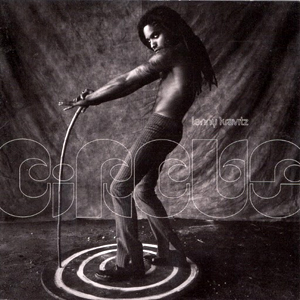
Circus is the fourth studio album by American rock musician Lenny Kravitz, released in 1995 by Virgin Records. It reached number 10 on the Billboard 200 and number 5 on the UK Albums Chart, becoming Kravitz's first top 10 album in the US and second in the UK.

Sex & Violins is the debut studio album by Swedish Eurodance group Rednex, released on Jive Records in February 1995.

k.d. lang is a Canadian singer and songwriter. Her discography comprises 12 studio albums, one soundtrack, one live album, four compilation albums and 41 singles.
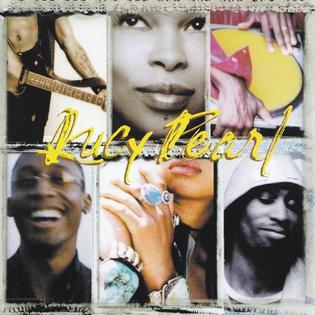
Lucy Pearl is the only studio album by supergroup Lucy Pearl released on May 23, 2000 by EMI Records.